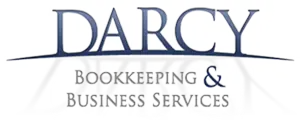


With high living costs putting pressure on Australians, every dollar counts. Saving on everything you can is no longer just a smart financial move—it’s essential for managing day-to-day expenses and securing your future.
Whether you’re an individual taxpayer, a small business owner, or a freelancer, understanding the Australian tax system can help you keep more of your hard-earned money. This guide will provide you with tax-saving strategies such as maximising your deductions and reducing your taxable income. By the end, you’ll be equipped with the knowledge you need to take control of your finances.
The tax system in Australia operates on the principle that both individuals and entities contribute a portion of their income to fund public services and infrastructure.
Individuals pay income tax on their earnings from wages, investments, and other income streams. The tax is calculated progressively, meaning higher income earners pay a higher tax rate.
As of the 2024–25 financial year, the tax brackets are as follows:
At the end of the financial year, individuals lodge a tax return to reconcile their income and claim deductions for eligible expenses.

Income for self-employed individuals is taxed at individual rates (based on the tax brackets above), not at corporate rates. Freelancers are responsible for setting aside a portion of their earnings to cover their tax obligations since no employer is deducting PAYG tax for them.
Freelancers earning over $75,000 annually must also register for Goods and Services Tax (GST) and include it in their invoices and complete Business Activity Statements (BAS). These statements report GST collected on sales, GST paid on expenses, and other tax responsibilities such as PAYG withholding for employees.
Small to medium-sized companies with a total yearly income under $50 million can qualify for a lower tax rate of 25%. To be eligible, at least 80% of their income must come from active business activities, not passive sources like interest, dividends, or rent.
Larger companies or those that don’t meet the requirements are taxed at the standard rate of 30%. If your business earns over $75,000 annually, you must also register for GST and lodge BAS statements.
Larger businesses must manage other tax-related requirements, such as payroll tax, company tax, and capital gains tax on the sale of assets.
For most individuals, the tax return deadline is October 31.
For businesses, quarterly BAS lodgements are due at the end of July, October, January, and April.
Missing these deadlines can result in penalties and interest charges.
Maximising your tax deductions in Australia means both knowing which deductions you can make and keeping accurate and detailed records of all income and expenses. The deductions you can make will depend on your specific situation.

Home Office Deductions as above, plus:
Please note that this is general advice only. For advice to your specific situation, please speak to an accountant or tax professional.

One option to reduce your taxable income is with salary sacrificing, where you allocate part of your pre-tax salary toward superannuation contributions. This not only reduces your taxable income but also boosts your retirement savings.
The low-income tax offset (LMITO) can provide relief if you fall within the eligible income range.
The private health insurance rebate can lower your tax liability while helping you to maintain adequate health coverage.
Investing in tax-effective strategies such as negative gearing on investment properties allows you to deduct losses against other income.
The Australian Taxation Office (ATO) requires claims to be backed up with evidence such as receipts, invoices, or bank statements.
Organised records help you track income and expenses, giving a clearer picture of your financial health. Accurate and up-to-date records ensure you meet legal obligations and make tax time less stressful.
Keep receipts, invoices, and other supporting documents for at least five years, as required by the ATO. Ensure records include essential details like the date, amount, and purpose of each transaction. Declare all income, including cash payments, to avoid discrepancies during an audit.
If you provide a service, make sure to issue invoices to customers and retain copies for yourself. Stay informed about changes in tax legislation to ensure compliance.
Keep in mind that audits can be completely random, so your safest bet is to always be prepared.
If you have a more complicated situation such as multiple income streams, work-from-home, investment properties, or you run a business, it’s a good idea to consult a professional. A trusted tax advisor can identify deductions you may have overlooked and provide personalised strategies to minimise your tax liability. They can also ensure you’re staying compliant with changing tax laws. When choosing a professional, look for a licensed accountant or tax agent with a strong reputation and positive client reviews.

Any expense directly related to earning income, such as tools, travel, or training, can typically be claimed as a deduction.
Saving money on taxes is about preparation and action. Start by organising your financial records, exploring eligible deductions, and taking steps to reduce your taxable income. Follow these tax planning tips to set yourself up for success this financial year.
If you’re feeling overwhelmed or unsure where to begin, our team of experienced professionals is here to help. Contact us now at Darcy Bookkeeping and Business Services or call us on 1300 728 875 for advice on how to save money on your taxes.
